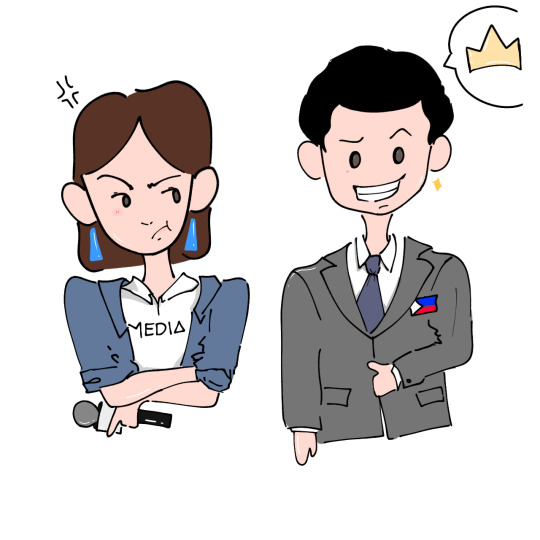“Media literacy empowers people to be both critical thinkers and creative producers of an increasingly wide range of messages using image, language, and sound. It is the skillful application of literacy skills to media and technology messages. As communication technologies transform society, they impact our understanding of ourselves, our communities, and our diverse cultures, making media literacyan essential life skill for the 21st century.” (The Alliance for A Media Literate America, 2000)
Don't wanna be here? Send us removal request.
Video
tumblr
2 notes
·
View notes
Text
2 notes
·
View notes
Text
Daneca G. Rabino
#iammediaandinformationliterate#1stPerformanceTask#LibraryAdvertisment#libraryadvertisment#DanecaG.Rabino
1 note
·
View note
Photo

Media and Government: A Love-Hate Relationship
0 notes
Text
Media and Government: A Love-Hate Relationship
Ever since the beginning, the media and the government have always been associated with a sour romance of a love-hate relationship. The relationship between the media and the government has a significant impact on the information available to the general population. Governments have traditionally relied on the media to communicate with citizens and stakeholders around the world, ensuring that they receive the information that will shape their daily decisions, including what to buy, where to live, and which school to attend, as well as issues concerning their health, safety, and political views. It's ironic that the rise of social media has restored some of the message's power to government leaders. Politicians can now communicate with the public directly, bypassing the media. And how some of them argue that today's excessive media use is influencing youth change, despite the fact that media has brought so many benefits to today's society.
In our case, we have a strange situation where social media is being used with the apparent aim of bringing about a specific conclusion in the polls just days before the elections. We are prone to such frauds because we place too much trust in what we discover online, and this ignorance provides a window of opportunity for governments to alter information to affect public opinions. According to political observers, the influence of such social media manipulation has been significant, even influencing the outcome. We all know that as social media users, we spend very little effort, if any, attempting to determine if a well-known news source's web page is legitimate or not. Although both sides are benefiting from such actions, the government gaining exposure and the media being able to share their thoughts, its pernicious effect on the people can't be denied. Sadly, as elections progress, some of the techniques used seem less than ethical – or are, at least, questionable. In the end, even though both have achieved something from each other in a destructive manner, such actions still continue.
0 notes
Text
“The Value of Being a Media and Information Literate Individual”
“Media literacy is not just important, it’s absolutely critical. It’s going to make the difference between whether kids are a tool of the mass media or whether the mass media is a tool for kids to use.” — Linda Ellerbee
Information and Media Literacy is defined as the knowledge, attitudes, and set of abilities required to recognize when and what information is required, where and how to receive it, how to critically assess and organize it once obtained, and how to use it ethically. In an increasingly digitized, interdependent, and global world, media and information literacy is a core human right that fosters greater social inclusion. It has the ability to bridge the gap between those who have access to a lot of information and those who don't. Being a media and information-literate individual is very important in today's digital age. Being able to effectively utilize various media and information tools and techniques will allow you to interact with a variety of digital platforms and systems. Being a media illiterate is difficult for us to overcome in the 21st century. Due to how information is presented and manipulated by the media, it is common for people to get tricked into thinking that something is not true. In reality, this is how information is brainwashed by the media. Technology keeps evolving and is rapidly increasing its influence in people. As a result many teenagers or students are involve in media.
Nowadays, people use media as a medium of communication. The digital age has made it easier for us to create our own media. Although media is an efficient and convenient tool in communicating, one must think critically in what information is credible. Being a Media and Information Literate individual not only helps us distinguish credible information but it also teaches us properly on how to identify, locate and access information. One of the values in being a media literate is being able to demonstrate and make educated decisions as users of information and media, as well as becoming skilled developers and producers of their own provider of information and communications messages. Knowledge and information have existed in various forms for a long time, and numerous national and international standards and concepts have been developed. Information literacy has now become an incredibly significant form of international promoting economic growth, not just in literacy strategies and programs, but also in multilateral policies to promote social progress. The significance of media in the digital age requires us to become a media and information literate.
1 note
·
View note